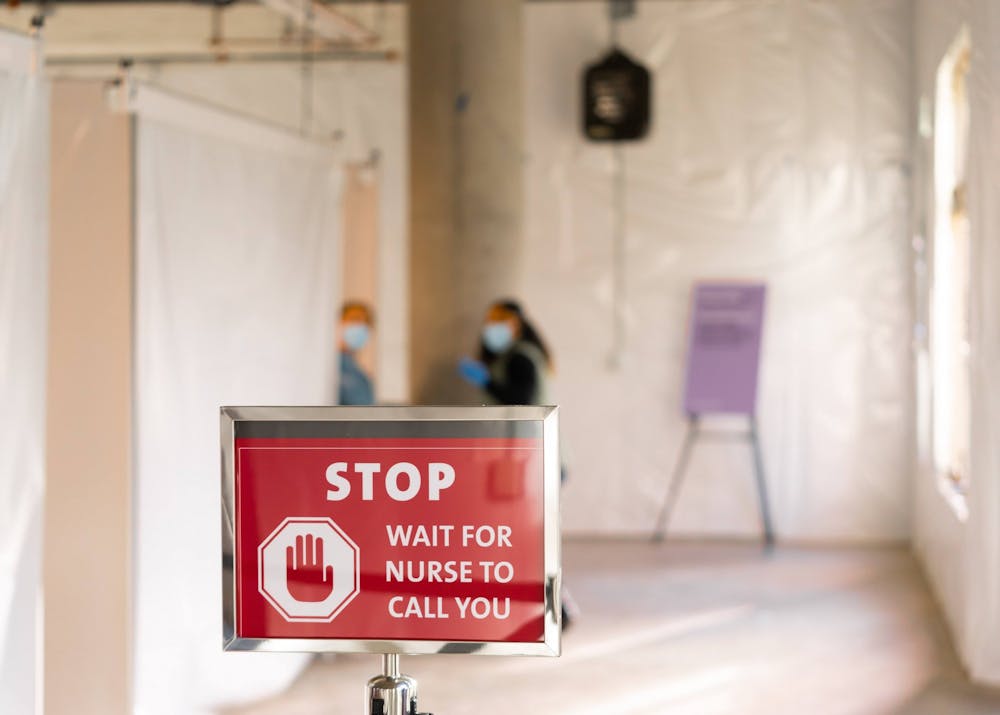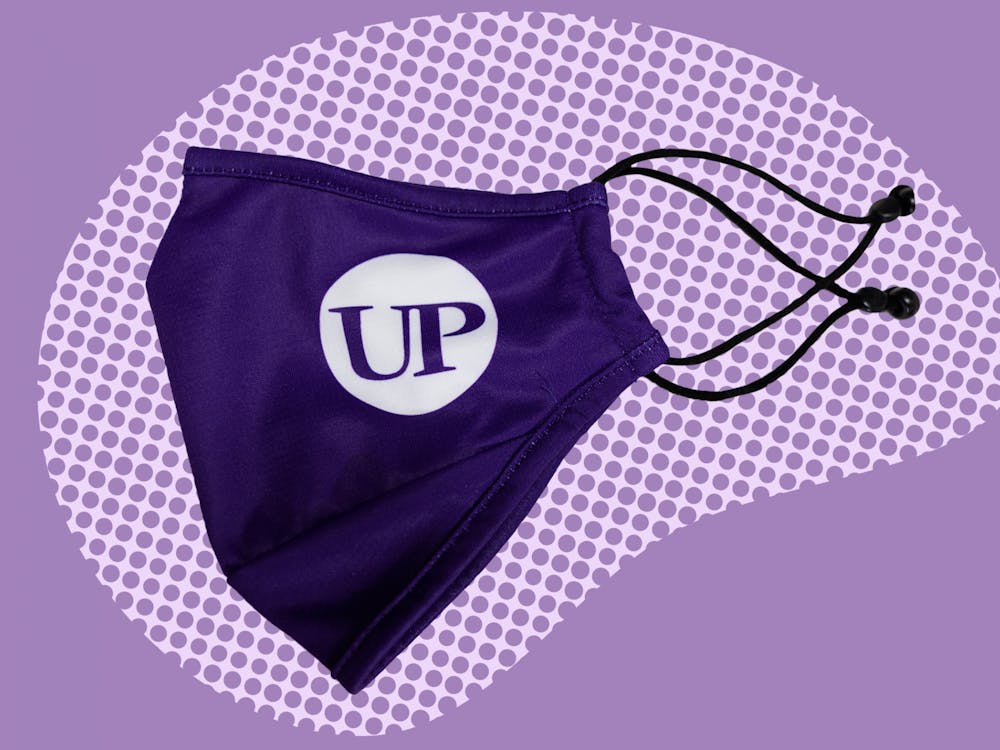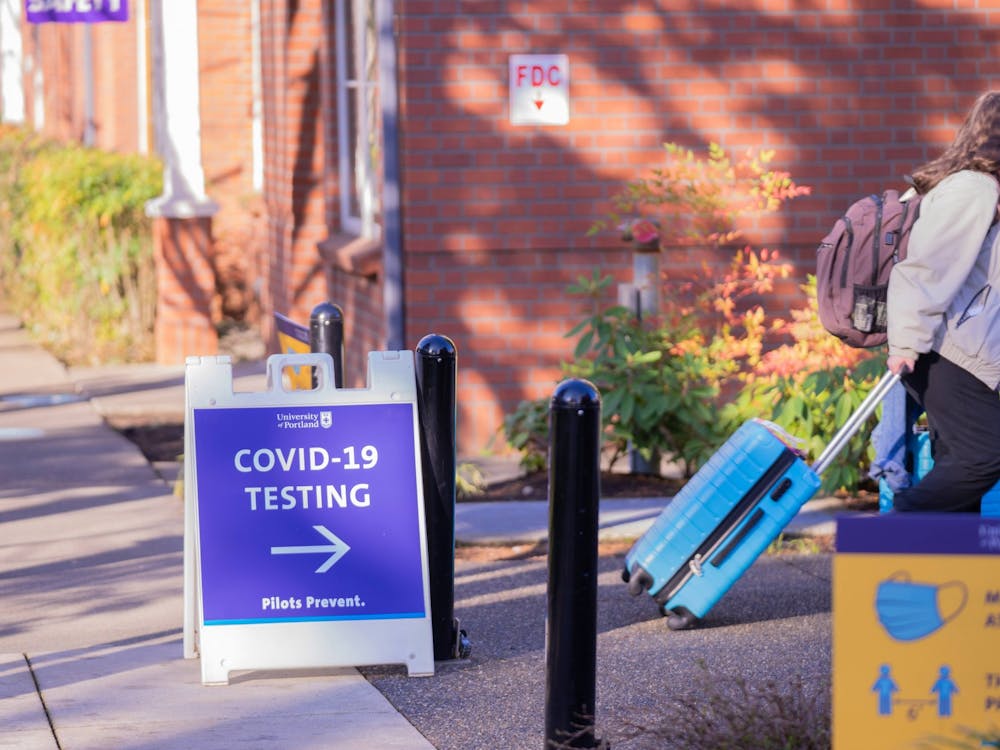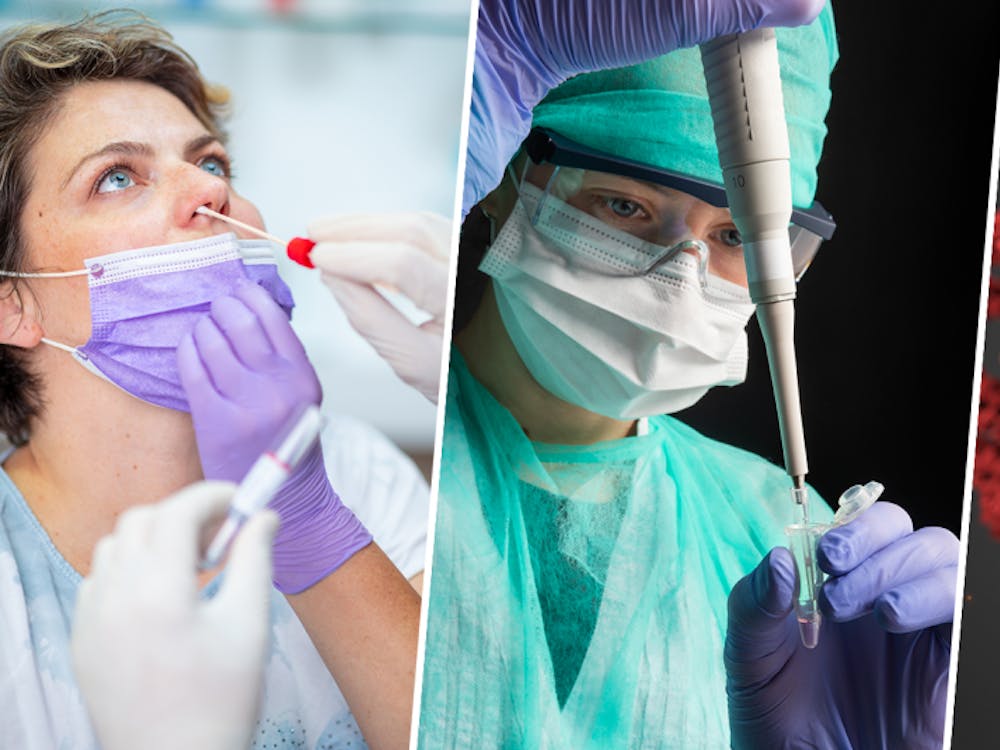Between Feb. 1-7, the University of Portland reported 0 positive test results out of 800 administered COVID-19 tests. The health precautions on campus appear to be working — a promising indicator for UP’s plan to hold primarily in-person instruction in the 2020 Fall semester.
“This all points to a successful semester ahead,” Fr. John Donato, vice president for student affairs, said in an email to The Beacon. “First, our ongoing surveillance testing is working and likely preventing the virus from spreading. Second, from talking to others on campus, I am seeing that students are, by and large, following protocols. Wearing masks and the other guidelines that we have put in place are extremely important to holding the virus in check.
UP students are still able to be tested for COVID-19 at the Health and Counseling Center (HCC) after an initial telemedical conference. Students with symptoms are given the Rapid Antigen Test, which takes about 15 minutes for results, while asymptomatic students take a PCR test with a longer wait of up to several days, according to Associate Director for Primary Care Services Kaylin Soldat. Both of these tests are free for students.

UP's COVID-19 testing facility is located in Lund Hall. On-campus students must present negative test results before moving in.
“We are providing asymptomatic testing for any student with an exposure to a known or presumed case of COVID-19,” Soldat said in an email. “At this time, we have been able to accommodate requests for testing the same day or next day for symptomatic individuals. Those with an exposure are recommended to be tested on day 5-7 of their quarantine.”
The HCC Primary Care Team has been partnering with Carbon Health for several months. Initially, their focus was on administering tests, but they are now working jointly on contact tracing. To help monitor any outbreaks, students should continue using the Carbon Health app daily.
“Carbon Health is performing contact tracing on the cases they identify,” Soldat said. “The University’s COVID Case Management Team is providing contact tracing for all other cases, including those identified at the HCC. Carbon and the UP Case Management Team are working closely with Multnomah County in all cases.”
Once a student tests positive or is exposed to the virus, they are expected to quarantine whether living on-campus or off. Those living on campus who test positive will move to a dedicated residential space for isolation, according to the Pilots Prevent website. Those with a confirmed exposure to someone with COVID-19 are advised to quarantine in their own room. A mini refrigerator, microwave, cleaning supplies and towel service will be provided in each isolation or quarantine room.
“The duration of each student’s quarantine is determined by a healthcare provider. It will be at least 10 days after their contact with a person who has COVID-19,” Director of Residence Life Andrew Weingarten said in an email. “In general, a student can’t test out of quarantine at UP. We want to be as thorough and comprehensive as possible to keep everybody healthy and safe.”
While access to food in quarantine might be a concern for students, Bon Appetit has no current plans for any meal delivery service or other accommodations for those with a confirmed exposure.
“Students in quarantine will have a fellow resident from their hall pick up their meals,” Weingarten said. “We have been working with students in each hall to identify a ‘quarantine buddy’ who can grab their meals if they need to quarantine. We have also made arrangements with Bon Appetit so that a student can bring in another student’s ID card for this purpose.”
Student athletes are the exception, with meals being scheduled and delivered to their dorms for easy pick up. According to Weingarten, this is because having food delivered makes more sense with their schedules.
Health signs and precautions can be seen all over campus, but that doesn’t mean every student is going to adhere to them. According to senior and Shipstad Hall Resident Assistant Sophie Downing, enforcing safety regulations among fellow students is not always easy.
“I do think that residents get frustrated sometimes when we're constantly having to remind them,” Downing said. “I think we automatically are seen as more of an authority figure... It's hard to be the one to kind of have to break that up and say ‘you know you have to do this the safe way,’ but then also completely understanding that they're just trying to feel at home here and get the most out of their college experience.”

COVID-19 sample processing equipment covers a pair of desks in UP's testing facility. Part of Lund Hall has been converted to accommodate the testing facility.
Following health regulations will be crucial to avoiding an outbreak at the University of Portland. For now, students should continue to use the Carbon Health App to monitor any symptoms and reach out to the HCC with any questions or concerns.
“Don’t be afraid or worried about having to quarantine,” Weingarten said. “We will all have to do it at some point. There is nothing wrong with that. Our team in Residence Life will do whatever it takes to ensure that all student needs are taken care of during a quarantine.”
Carlos Fuentes is the Copy Editor for The Beacon. He can be reached at fuentes22@up.edu.
William Seekamp is the Sports Editor for The Beacon. He can be reached at seekamp22@up.edu.








